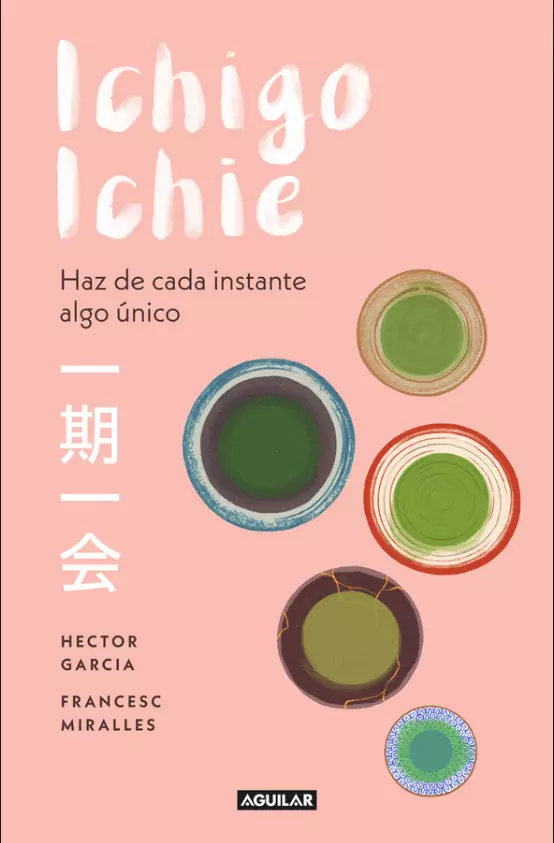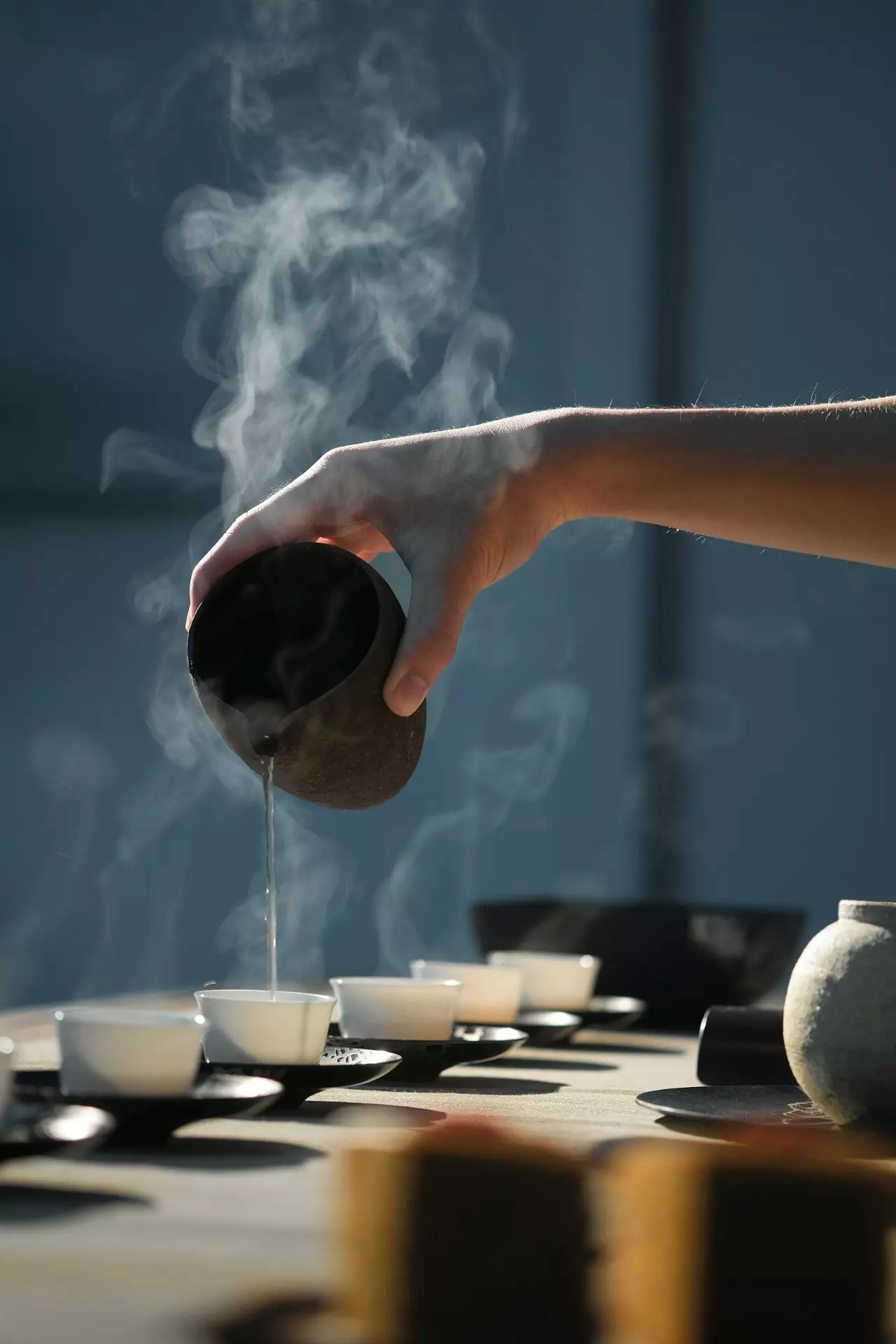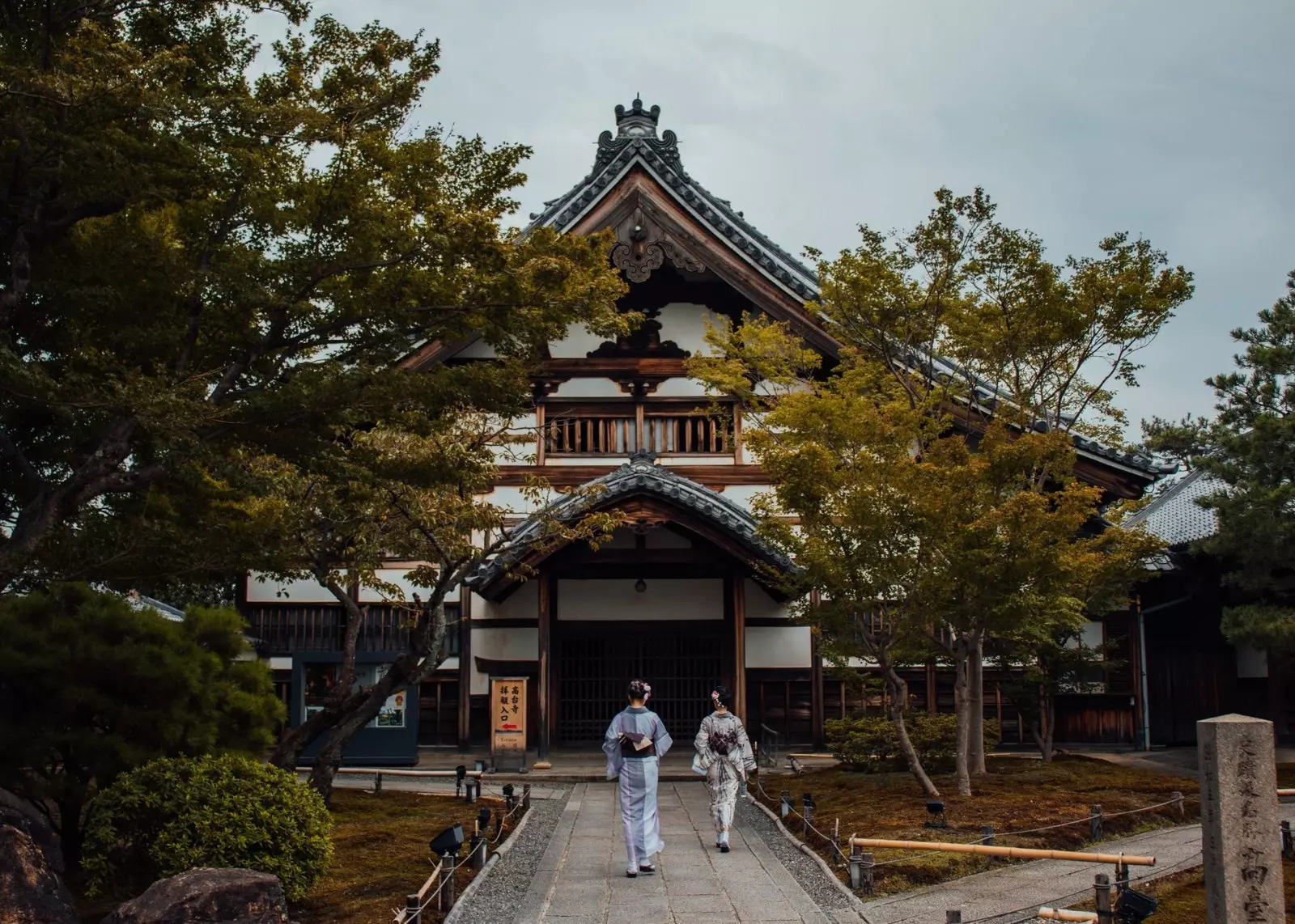
What is going to happen here will never happen again.
What is going to happen here will never happen again . Have you ever thought about it? Have you taken into account that every moment is unrepeatable, however boring or wonderful it may be? In the ** traditional Japanese culture ** they call it Ichigo-Ichie, a meeting, an opportunity.
And although it is a metaphor of life, the term was created in the tea ceremony , where the master asked the participants for their maximum and full attention.** A ceremony where the five senses are cultivated**: how does the tea taste, what is its aroma, what are the utensils like and admire their beauty, touch them and feel each sip as something special and learn to listen to everything that surrounds them in that ceremony; that usually takes place in houses in the middle of the forest.
You can then imagine the sound of the trees, the birds singing and the stream of water falling into one of the well-cared Japanese ceramic cups. That's Ichigo Ichie.
We discover this tradition in the latest book by Francesc Miralles and Héctor García, Ichigo-Ichie. Make every moment something unique (Ed. Aguilar, 2019). The second of his books on Japanese traditions.
The first was Ikigai, the secrets of Japan for a long and happy life (Uranus, 2016), in which they tried to decipher what was the secret of the oldest people in the world, the Adeans of Ogimi.

Ichigo-ichie: Make every moment something unique.
“Just like what happened in Ikigai, Héctor García, who is the one who lives in Japan and for 15 years he has had a blog with cultural aspects of what he is discovering, he told me that in traditional tea rooms you would see a table with the two Ichigo-Ichie signs , What does it mean “once, one chance” and that it was worth studying. This is a motto of attention, of sharing with others, during the tea ceremony that is more than five centuries old”, explains Francesc to Traveler.es.
And although it may seem that we already have this concept very assimilated in Western culture, it is not so, It has nothing to do with the Latin expression Carpe Diem.**
“Carpe Diem is an expression that has a negative connotation , which is seize the day. In other words, since we don't know when we're going to die, we're going to get drunk, we're going to spend, we're going to indulge in vice... Ichigo-Ichie it has nothing to do with this; invite is to be totally present in what we are doing, especially with the people we are with , without being distracted by social networks… not even with thoughts of the past or future. It would be the art of celebrating the moment and Carpe Diem is the art of living as if there were no tomorrow”, he clarifies.

Ichigo Ichie is born in the Japanese tea ceremony five centuries ago.
The book is an essay that helps us to be able to practice Ichigo-Ichie** in our daily lives, knowing the tradition and some of the other concepts that accompany traditional Japanese culture and deal with the same philosophy as ikigai or the Kintsugi , the art of repairing ceramic pieces.
It helps us create unforgettable moments with people we love or with strangers, and practice mindfulness . But, as Francesc points out, you don't have to go to Japan to understand Ichigo-Ichie either, we also have it close by.
“I believe that there is no need to establish differences between the West and the East. Sometimes we have the feeling that in Japan they live in the rice fields and it is not like that, there are also places like Osaka, where there are the same problems that may exist in Madrid or New York . The difference is between the countryside and the city. And it was precisely in the countryside of Okinawa, where the oldest group of people in the world lives, that we discovered Ikigai.
And he remembers: "there the tea houses were originally in green spaces and gardens, which invite attention with the five senses. But all these wisdoms also exist in the West, because in the towns of Spain there are also ways of living in harmony with nature”.

Do you know how to appreciate the present moment?
In fact, there is a film character, who is not oriental and that we all know (and that stands out in the book Ichigo-Ichie) who perfectly stages this harmony of life . When the movie was released Forrest Gump in Japan in 1995 the full title read like this: Tom Hanks as Forrest Gump, Ichigo Ichie.
What they wanted to convey was that the character He was a person who was having fortuitous encounters with others, thanks to chance, and made of them something unrepeatable and memorable . "If we go to the beginning of the ceremonies, one of the rules that he set was to treat your guests with Ichigo-Ichie, that is, as if you were never going to see them in your life", adds Francesc.
And although in tea ceremonies** everything is already written, it does not mean that they are always the same**, quite the opposite. “A few months ago I was lucky enough to be able to see Swan Lake in Saint Petersburg, and there is a choreography that is always done the same way, but it is always different. No two moments are the same. The tea ceremony has a protocol, but that does not mean that it is always the same, because each teacher interprets it in his own way”.
And how can we apply it to the current moment in which we are? Is it possible to enjoy it? “The current moment is perfect to practice Ichigo-Ichie. We are experiencing it as a burden, but it is a unique moment. In two years when I am alone in the history books, and we are running from one place to another, surely we will say to ourselves “that time of confinement at home in which I was able to read books, I was able to write, I called friends with those who had not had contact for a long time…” therefore we can contemplate with nostalgia some advantages”.
Therefore, the author advises: “know what we want to do with this time… How can we make each moment we share something unique to remember in the future. Not as a missed opportunity but as a retreat where we did some really cool stuff.”.
EIGHT ZEN LESSONS FOR AN ICHIGO-ICHIE LIFE
1.Just sit back and watch what happens.
2. Savor this moment as if it were the last.
3. Avoid distractions.
4.Free yourself from all accessories.
5.Make friends with yourself.
6. Celebrate imperfection.
7. Practice compassion.
8. Get rid of expectations.
